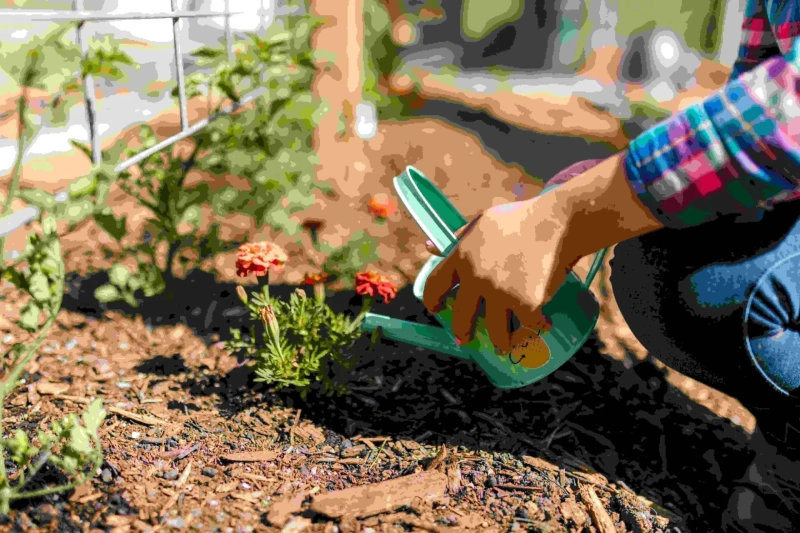If your plants lack love, care, and resources, you can bet they will show signs. The great news is if you have underperforming plants, High-Quality compost can be the answer to your problems.
One of the benefits of composting is that it is cost-effective, renewable, sustainable, and recycles organic materials that would be wasted in the landfill. and you can make it at home. You can prepare it by decomposing organic waste such as leaves, plant stems, fruits, used vegetables, kitchen waste, and manure, if you have it.
If you don’t have the time or resources to create yours, you can buy compost in bags from reputable vendors. Simply searching buy activated organic compost online near me would be a great place to start, or you could ask for recommendations from your fellow green thumbs in the neighborhood.
Stunted growth.
One of the signs that your plants and flowers lack nutrients is stunted growth. The signs may present as yellowing, holes or discoloration in the leaves, reduced size, poor fruit formation, etc. Compost provides nutrients to the soil like nitrogen, phosphorus, and potassium.
Compared to traditional fertilizers, compost does more than providing your soil with nutrients. Traditional chemical fertilizers give a quick boost to plants, but they are like junk food - causing harm to the soil and bypass the workings of microbes and biology which give fruits and vegetables wonderful flavor and nutrient value.
Your soil retains too much water.
High water retention is often associated with clay soil, where the soil particles are fine and have very little space between them. In simple terms, too much water can drown your plant- it robs them of oxygen. Leaves may turn brown, wilt, and plant growth will be stunted. Compost aids in providing spaces in the clay particles and improves its structure, thereby improving water drainage.
Your soil doesn’t hold water.
We all know that water is essential to plant growth and the sustenance of soil microbes. If you discover that your soil is too dry and plants are not thriving, you should consider adding compost. Telltale signs of lack of water include dried leaves, stunted growth, death, etc- This problem is common with sandy soil which is common in Central Wisconsin. Compost improves the structure of loose soil by binding to it, making soil particles more cohesive and improving its water retention.
High acidity or alkalinity.
Sometimes, your lawn and plants may not perform optimally due to high acidity or alkalinity. They may have stunted growth and be infested with weeds that thrive in acidic conditions such as dandelion, horsetail, etc. You can test soil pH with home items such as baking soda or vinegar ( acidic soil will fizz in baking soda solution while alkaline will fizz in vinegar). The good news, compost is neutral with a pH ranging from 6-8. This can help balance soil conditions and bolster plant development.
Low biome activity.
If you have worked on your soil and you find little to no biological activities, such as evidence of earthworms, it may be calling for some good old compost. Those organisms help aerate the soil and improve oxidization and nutrient absorption and may be missing in yours due to high moisture content or pH. As discussed above, compost will improve soil structure, promote the growth and activities of the helpful organism, and aid your plants.


